‘Peace at the border is Bangladesh’s duty’
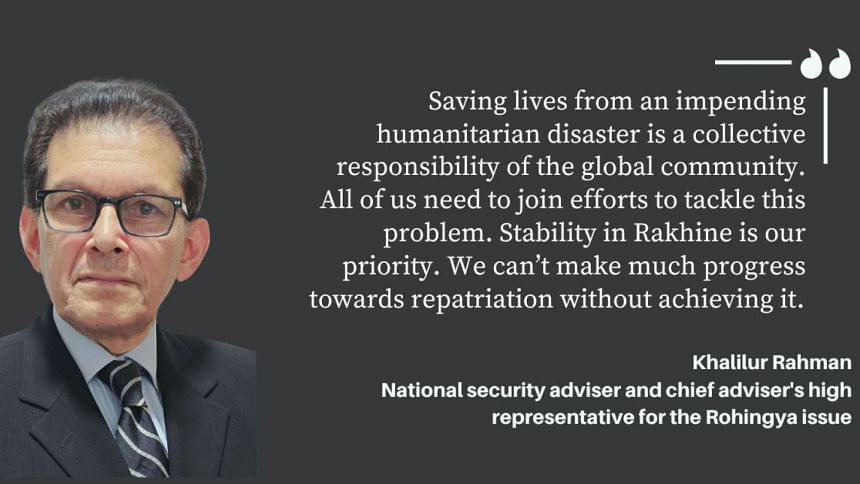
In light of a United Nations' proposal for establishing a humanitarian channel into Myanmar's Rakhine state, Dr Khalilur Rahman, national security adviser and chief adviser's high representative for the Rohingya issue, speaks to Ramisa Rob of The Daily Star clarifying Bangladesh's position and what lies ahead.
What is the current status of Bangladesh's involvement in humanitarian assistance in Rakhine state?
The question of humanitarian support to the Rakhine state arose when we learned about the acute humanitarian crisis it was facing. The United Nations Development Programme (UNDP) predicted impending famine-like conditions. We were concerned that this situation would drive more people from Rakhine into Bangladesh.
We are already shouldering the burden of sheltering over 1.2 million forcibly displaced Rohingya from Myanmar and cannot simply afford another wave of refugees. It's already a big burden for us.
Given the deteriorating humanitarian conditions in Rakhine state, the UN and Bangladesh began consideration of the provision of humanitarian support. Since all other aid delivery avenues are not viable due to conflict, Bangladesh turned out to be the only feasible option. The UN would organise distribution of aid through its channels within Rakhine, and Bangladesh would provide logistical support to transfer aid across the Bangladesh-Myanmar border.
We also considered that aid to Rakhine would help stabilise the state and pave the way for creating enabling conditions for the return of the Rohingya people to Myanmar.
There has been informal discussion between the UN and Bangladesh on humanitarian aid to Rakhine but no formal proposal has been made by any party. Like elsewhere in the world, such support would require consent of all relevant parties and satisfaction of a number of prerequisites for aid provision. These include, among others, unimpeded access of aid providers and recipients, non-discrimination in the provision of aid, non-weaponisation of assistance and suspension of armed activities.
How is Bangladesh balancing between the Arakan Army (AA) and the Myanmar ruling junta?
We realised the need for keeping contact with the AA when they took control over the Myanmar side of our border. It is our duty to protect our border and keep it peaceful. For this reason, we decided to make contacts with the AA.
We have continued to engage them in the context of humanitarian support, repatriation of the Rohingya, and the inclusion of the Rohingya at all levels of the emerging governance and security structure in Rakhine.
Our contact with the AA is due to practical necessity. We are also maintaining contacts with the Myanmar government. We need to keep in touch with all relevant actors with a view to sustainably resolving the Rohingya issue.
The foreign adviser has recently said certain conditions will need to be met for Bangladesh's agreement to the UN proposal for humanitarian assistance. What are those conditions and has there been any progress in such discussions?
All the relevant parties need to agree. Moreover, the AA needs to ensure that access of aid providers and recipients is not impeded, aid is not weaponised and there are no armed activities. Moreover, the AA needs to sincerely demonstrate its commitment to an inclusive society in Rakhine by including Rohingya at all levels of Rakhine's governance and security structure. Otherwise, it will appear to the world as a picture of ethnic cleansing, which we will not accept. We are awaiting the AA's response.
What are the security stakes and risks for Bangladesh?
Giving aid in a conflict situation is likely to jeopardise safety and security of the aid providers and recipients. Prevalence of landmines and IEDs is another threat to safety and security. These issues need to be addressed ahead of the provision of aid.
What would China's position be regarding the UN humanitarian assistance to Rakhine? What would India's position be?
Saving lives from an impending humanitarian disaster is a collective responsibility of the global community. All of us need to join efforts to tackle this problem. Stability in Rakhine is our priority. We can't make much progress towards repatriation without achieving it.
We are already seeing more Rohingya coming into Bangladesh. If this continues, how does Bangladesh plan on addressing another influx?
We don't want another influx of refugees. We simply can't afford it. There was a sizable influx of Rohingya from Rakhine during intensified conflict between the AA and Myanmar forces from 2023 until autumn of 2024. Rohingya refugees have continued to enter Bangladesh thereafter, albeit in smaller numbers.
We are coordinating with the relevant actors to prevent another wave of refugees into Bangladesh. In particular, we have signalled to the AA that they must ensure that there is no further violence, discrimination and displacement of Rohingya inside Rakhine. They have the responsibility to observe international law including international humanitarian law. And the world is watching. Our continued contacts with them will depend upon their action in this area, as well as on Rohingya representation.
Follow The Daily Star Opinion on Facebook for the latest opinions, commentaries and analyses by experts and professionals. To contribute your article or letter to The Daily Star Opinion, see our guidelines for submission.


 For all latest news, follow The Daily Star's Google News channel.
For all latest news, follow The Daily Star's Google News channel. 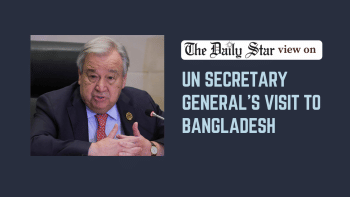



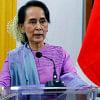
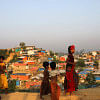

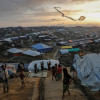
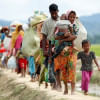


Comments